Editor’s note: Deseret News journalist Kyle Dunphey and photojournalist Kristin Murphy traveled to the border of Ukraine in Poland and surrounding countries to view the impact of the refugee crisis. This is the third of several dispatches from the border.
KRAKOW, Poland — Irina Konovalova arrived in Poland on April 16 with dark circles under her eyes.
Russian soldiers — “occupiers” or “invaders,” she calls them — took her and her mother from their home in the smoldering city of Mariupol in southeast Ukraine to a nearby village. For 19 days they traveled from town to town, stopping in Lviv, then eventually the border village of Medyka, Poland.
Besides her cat Slotki, the 23-year-old had almost nothing but her winter parka and a pink hat that reads “It’s a good day.”
“That and her boots are really the only thing she owns,” said American Fork resident Bob McGee as he walked through a sprawling mall near downtown Krakow. “We’re going to try and change that.”
A former chief financial officer at a bank, McGee is one of many Latter-day Saints in Krakow, working 15-hour days and dipping into his personal bank account to help Ukrainian refugees navigate life in a foreign country.
They’re a small slice of the interfaith pie now baked into Poland, after denominations from around the world flocked to Eastern Europe to help the millions of refugees now living there.
It’s apparent in the busting border village of Medyka, where faith groups at one point helped admit 11,000 refugees a day. Or the historic churches of Poland that transformed into refugee centers with the help of a small, nondenominational church from England. Even the sprawling city of Krakow, which is now ground zero for independent Latter-day Saint volunteers.
Wherever you look, different faiths have put politics aside to help refugees.
“Putin’s got enough enemies,” said Gyan Singh, with the United Sikhs. “Nobody wants him to win, so of course everybody is here helping these people to survive and thrive.”
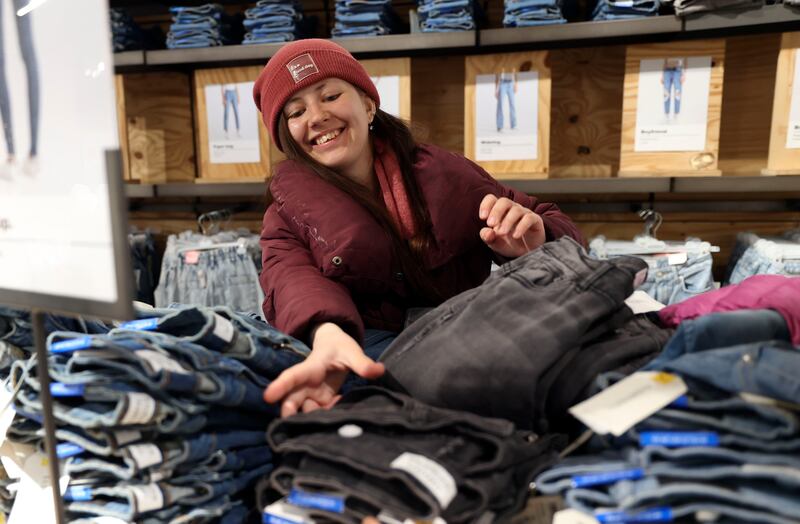
‘One family at a time’
On a dreary Friday afternoon in downtown Krakow, McGee racked up a $200 bill as he bought Konovalova, of Mariupol, new shirts, pants, jackets and shoes.
Konovalova grinned, flipping through the racks at Terranova, a clothing store based in Eastern Europe. “(My) favorite color is pink,” she said, somewhat preoccupied as she spoke through a translator, her attention stolen by the pink bedazzled sweatshirt before her.
The next day she boarded a train bound for Vienna with her mother and Slotki the cat. And McGee returned to a Latter-day Saints meetinghouse in Krakow, looking for the next family to help.
Konovalova is one of dozens, probably hundreds, of refugees that independent Latter-day Saints in Krakow have helped in recent months.
Using the Krakow meetinghouse as a home base, they drive vans to the border towns, picking up Ukrainians who travel across the checkpoint on foot.
They buy them food, find them places to sleep, and for the last month have made sure between six to 10 rooms at a nearby hotel are always booked for refugees.

They look for long-term housing in Poland, or call around to see if nursing homes are available. If the refugees are ready to leave, they take them to the train station or airport, stand in line as they wait for their tickets, and help them carry their suitcases. If they don’t have suitcases to carry — many arrive in Poland with their belongings in plastic grocery sacks, or carried loosely — the volunteers have that covered, too.
It’s the easiest way to spot the Latter-day Saints. Whenever a group pulls up to Medyka, an army jumps out wheeling suitcases to be distributed to the refugees walking in through the border checkpoint. Sometimes they’ll take suitcases to the train station, or to a refugee camp. Basically wherever the volunteers go, they bring suitcases.
“We can’t help everybody, it’s like the starfish story — we’re helping one family at a time,” says Lance Foster, of Arizona. “But in the day or two that you have with them, it feels like you’re lifetime friends.”
In early March, Foster was planning a spring break vacation to Costa Rica with his family. But relaxing on a beach didn’t seem right as increasingly violent images of the Russian invasion dominated the news cycle.
“I think I need to go to Poland,” he told his wife.
So Foster flew his family to Krakow, a decision that coincided with a general conference message from President Russell M. Nelson of The Church of Jesus Christ of Latter-day Saints, where he called on “people everywhere to pray for those in need, to do what they can to help the distressed.”
In the weeks that followed, a community of like-minded Latter-day Saints descended on Poland, a country where the faith has a relatively small presence.
They work around the clock — it’s common to find Foster or McGee roaming the halls of the meetinghouse, or a nearby hotel, in the early hours of the morning. When the two men are not glued to their phones, they’re driving across eastern Poland, ushering families through the train station or shopping for aid. “Just finding trains, planes and automobiles,” Foster says, describing his typical afternoon.
Foster has yet to book a return flight to Arizona. He probably won’t until the war is over, or at least until the humanitarian crisis cools down. His wife and three of their five kids recently wrapped up a return trip to Krakow — they have another visit planned for the summer.
“I’m in it for the long haul,” he said, speaking over the phone at 11:45 p.m. “We’re OK with staying for the whole school year if we need to.”
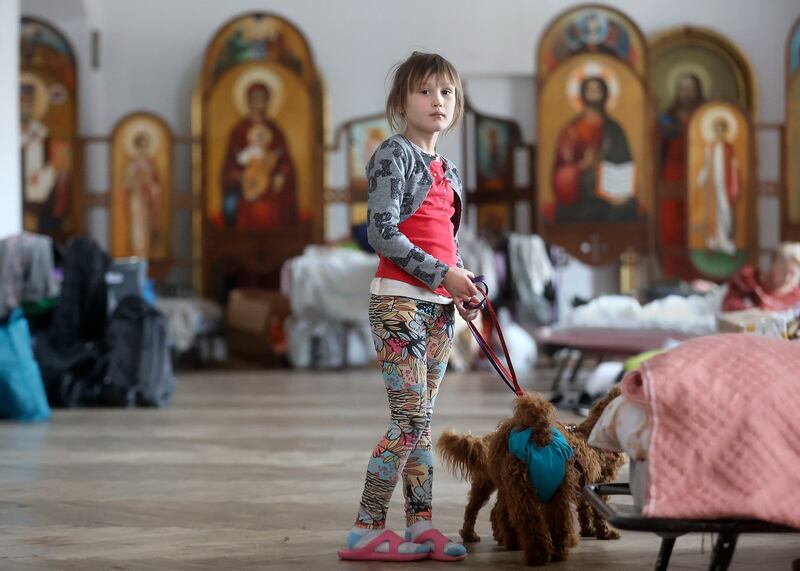
The little church that could
The historic town of Przemysl, just 10 miles from the Poland-Ukraine border, is home to several towering, beautiful churches. Like the Greek Catholic Cathedral of St. John the Baptist near the town center, which is now home to about 20 refugees.
Nicknamed “three bells church” by volunteers, the cathedral is one of many near the border helping to house refugees thanks to the members of the England-based church Love Bristol.
Following Russia’s invasion, the European Union reinstated a temporary protection directive that allows refugees to access the labor market, social welfare and move freely within the 27-nation bloc. Refugees looking to move to England, however, face a more complex visa process after the country left the E.U. in 2021.
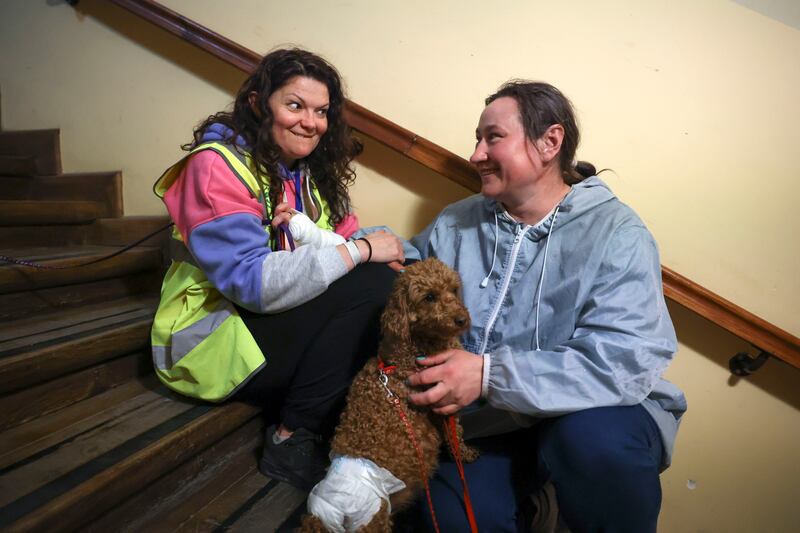
The process can take weeks and requires a sponsor, putting refugees in limbo as their application is reviewed. And most of the large camps don’t generally accommodate limbo, like the retrofitted Tesco grocery store in Przemysl that lets refugees stay for only 48 hours with a few exceptions.
Enter Love Bristol, a small, nondenominational congregation of less than 40 people. Volunteers from the church, currently living in an unfinished construction site, have established a faith-based network that includes Greek Orthodox and Pentecostal churches around Przemysl to serve as temporary housing while refugees wait on their visas.
There are typically five to 10 volunteers from Love Bristol in Przemysl, helping roughly 250 refugees looking to move to England.
“Looking after that many people at a time is intense,” says Love Bristol volunteer Rachel Molano, who told the Deseret News she works 12 to 14 hours every day. “We’re doing it on an absolute shoestring, we’re a tiny, little charity church. ... We have to interview the refugees, find out what their preferences are, where they want to be, who they want to be with, then match them up with a host back home.”
But despite the long days, Molano and other volunteers can’t seem to break away. They suffer from “withdrawals” when they do.
“We’re just constantly slammed, yet we go home and we want to come back, we love it. We get so attached to the Ukrainians.”




A colorful coalition at the border
Thubten Wangchen stands near the gate marking the entrance to Poland, wearing his flowing red robe and an infectious smile as he greets the slow trickle of refugees coming through the border checkpoint in Medyka.
It’s a chilly Friday afternoon, with temperatures hovering around 40 degrees. And Wangchen’s arms, riddled with goosebumps, are exposed. But that doesn’t faze the Buddhist monk and exiled Tibetan Parliament member, as volunteers and refugees alike bombard him with photo requests.
“No, no, of course not,” Wangchen responds, cheerily, when asked if he’s cold. “We try to be (here) in solidarity, with the Ukrainian brothers and sisters. Because we Tibetans suffer the same way.”
Wangchen’s visit to the border was short — he spent two days handing out donations to women and children entering Poland. “We will come back again, knowing the situation,” he said.
But his presence was symbolic of the strong, interfaith coalition that has settled in at Medyka. One that Wangchen says sends an important message.
“Unity is (how) we can achieve something, otherwise there’s division in the countries, (and) the fanatics win,” he said.
Unity is power, he said, enough “to stop the war and the problems of the world.”

One any given day, a handful of faiths are represented in Medyka. You can spot volunteers with the Jewish Agency for Israel helping refugees navigate public transit after hauling their luggage down the pedestrian walkway. There are Jehovah’s Witnesses welcoming refugees near the checkpoint, or members of Egyptian Red Crescent, a secular offshoot of the Red Cross based in Cairo, whose volunteers are mostly Muslim.
You’ll definitely smell the United Sikhs’ food, which they bring to anyone waiting in the long line of cars on the Polish side, or the long line of people on the Ukrainian side.
“Food is a symbol of equality, brotherhood and fellowship,” said Singh, with the United Sikhs. “It doesn’t matter what you believe, where you’re from and what your biases are, if you're hungry you can eat our food.”
There’s occasional bickering between them. But it’s minimal, and the division that might prevent the diverse group of faiths from working together in other parts of the world is mostly absent in Medyka.
“You can feel it when you walk in here, that everyone just wants to help each other no matter where you come from or what your mission is,” said Ygor Yeedye with The Jewish Agency for Israel. “There’s no politics here.”










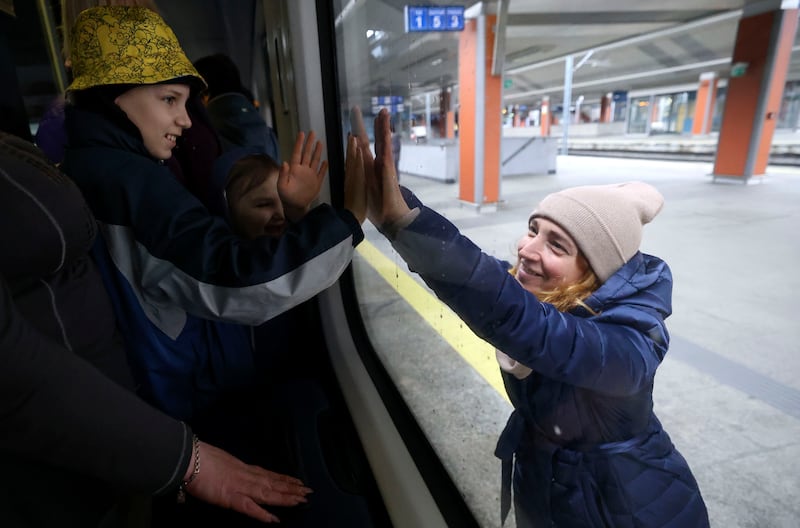
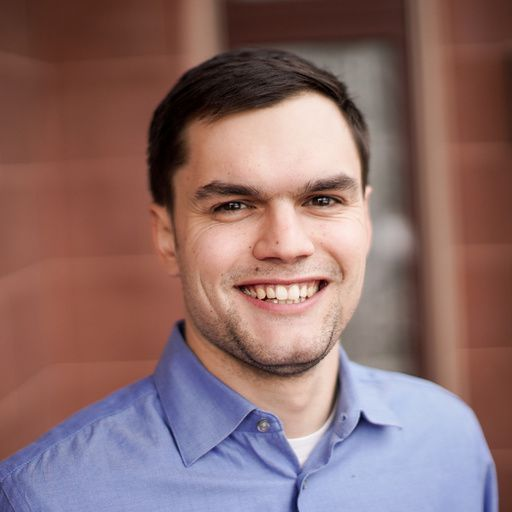 alt=Kyle Dunphey
alt=Kyle Dunphey











